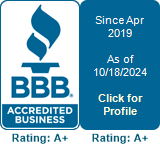Does Your Homeowners Policy Cover Your Airbnb?
In this article, you’ll learn from a leading insurance industry expert about the overall structure of the insurance market for short-term rentals We’ll also clear up some common misconceptions, and provide some tips for how to find a solution for your situation.
Here’s what you need to know about insurance when it comes to short-term rentals. There are many different ways that hosts conduct their rental activities. And this impacts what types of risks they are exposed to, and what type of insurance coverage may be available for those risks.
The insurance market is segmented into commercial line and personal line products. When it comes to short-term rentals, there are products available from both markets.
Commercial policies are a great choice if you host frequently and the income source from your rental is significant. Some providers specialize in vacation rentals and their policy structure is tailored to the unique risks of short-term rentals. For example, bed bug coverage and liquor liability are some features that may be included in these policies. Most commercial vacation rental policies have restrictions on shared spaces between the host and guest, such as kitchens, bathrooms, etc. So if you are renting out a spare bedroom in your home, you may not be eligible for these products.
Residential policies typically provide a homeowner’s policy with an endorsement for home rental activity. These policies are ideal if you are renting out one or more spare bedrooms in your home with shared spaces between yourself and the guests. Most insurers in this market place restrictions on the number of days in a rental period and they generally prohibit rentals for meetings and events.
Other types of policies include per-day and liability only coverage. These types of policies require that you have an existing underlying homeowner’s policy. And of course, some of the major platforms offer insurance for the property damage and liability relate to the rental activities.
There are some common misunderstandings that people have when it comes to insuring their short-term rental activities
My umbrella will cover everything, right? Wrong! Umbrellas are personal line products. They do not cover short-term rental exposure unless they explicitly say so. Most umbrella carriers do not accept this type of risk due to its commercial nature There are some who do, so if you are looking to rely on your umbrella, make sure your policy is from an insurer who is ok with this exposure and puts it in writing.
Not telling your homeowners insurer that you’re doing short-term rental can be super risky! Your homeowners insurance is based on the assumption that your home is used for residential purposes. Some policies may allow up to two roomers or boarders, but not for short-term rentals. Other policies may completely prohibit short-term rentals. Typically, your homeowners policy does not explicitly say anything about short-term rentals. It’s the overall language and policy structure that dictates what’s allowed and what’s not. Insurance policies are not easy documents to digest and it may be difficult to figure out what your policy really says on this matter. Generally speaking, most policies prohibit commercial activities. Since short-term rentals are typically marketed via online platforms, the rental activity has a digital footprint. Insurers are pretty savvy when it comes to figuring out who’s doing what, so you should assume that they will be able to find out.
If you’re thinking you can just rely on the platform insurance, think again. In some situations, hosts may not be eligible for either the commercial or residential offerings, so they have no other choice. The biggest risk of relying solely on the platform insurance, as well as with the per-day or liability only products, is that your homeowners insurer did not approve the short-term rental activity for your property. It’s not just that they won’t cover claims related to the rental. Since the rental activity was not approved, you are not compliant with the policy. An insurer who is seeking to avoid honoring a non-rental related claim payout could use this as a defense, particularly if the rental activity is frequent. Simply put, they did not underwrite the home to be used as a business, so you were not being upfront with them about how you intended to use the home.
So how should you go about insuring your short-term rental? No matter what your situation, the following recommendations can help you get the solution that best meets your needs.
Get it in writing: Find a policy where the insurer is ok with short-term rentals, and it is clearly written either in the policy itself or the policy declarations.
Use a property manager: Having a professional manage your property not only eases your burden, it demonstrates to the insurer that the rental is being managed according to certain standards. Some insurers even offer discounts for this!
Speak to an expert: If you have questions about your policy, talk to your agent. If you’d like to understand your options for short-term rentals, speak to an independent agent specializing in short term rentals. Most insurers for plain vanilla homeowners policies are captive, which means their agents are prohibited from offering policies from other insurers. Since they don’t have products for this market, their agents may simply tell you that there is nothing available. Don’t let this stop you from exploring your options.
If you have any questions about this article, or you’d like to speak to someone about insurance for your hosting situation, you can reach out to me at [email protected]




